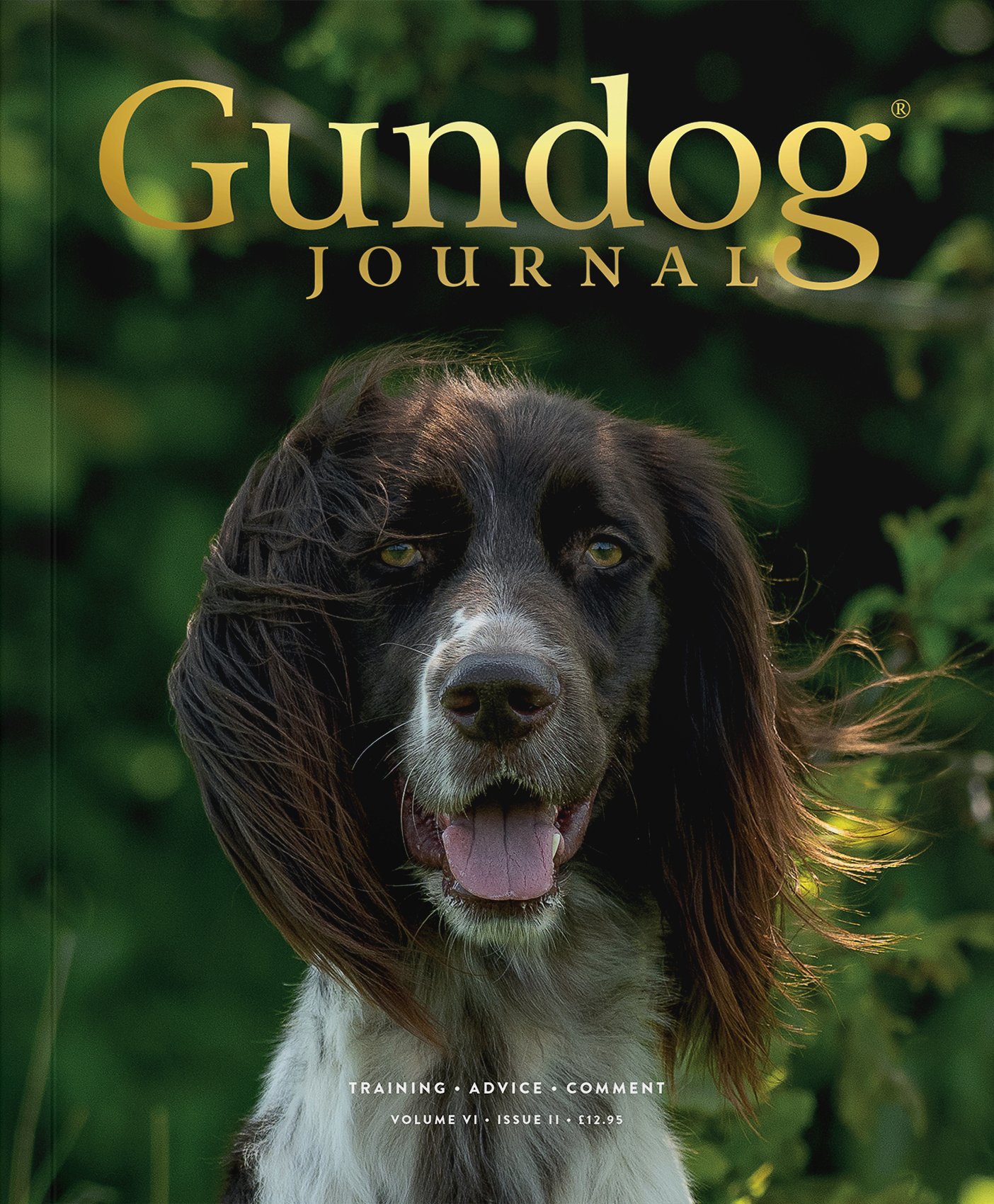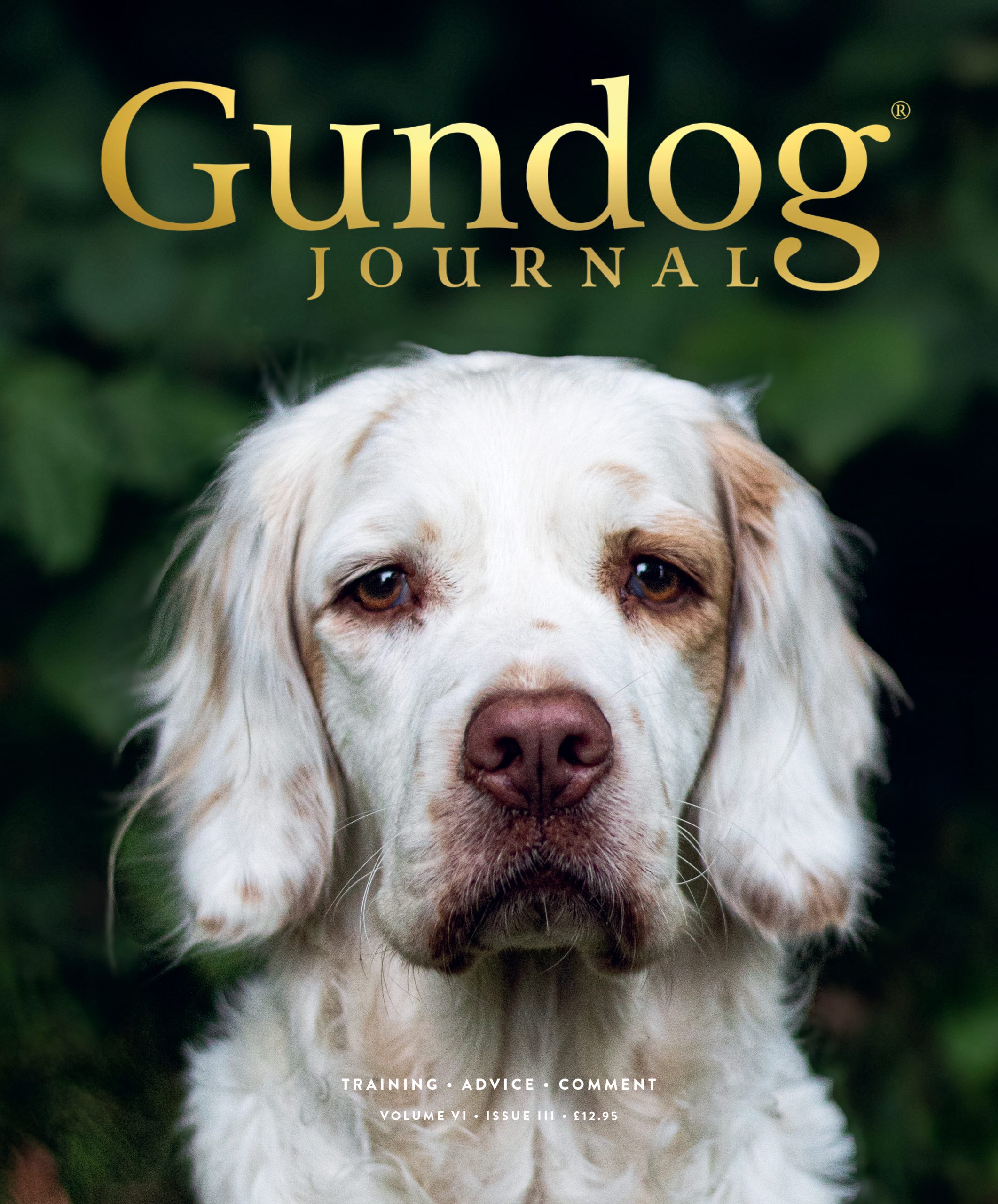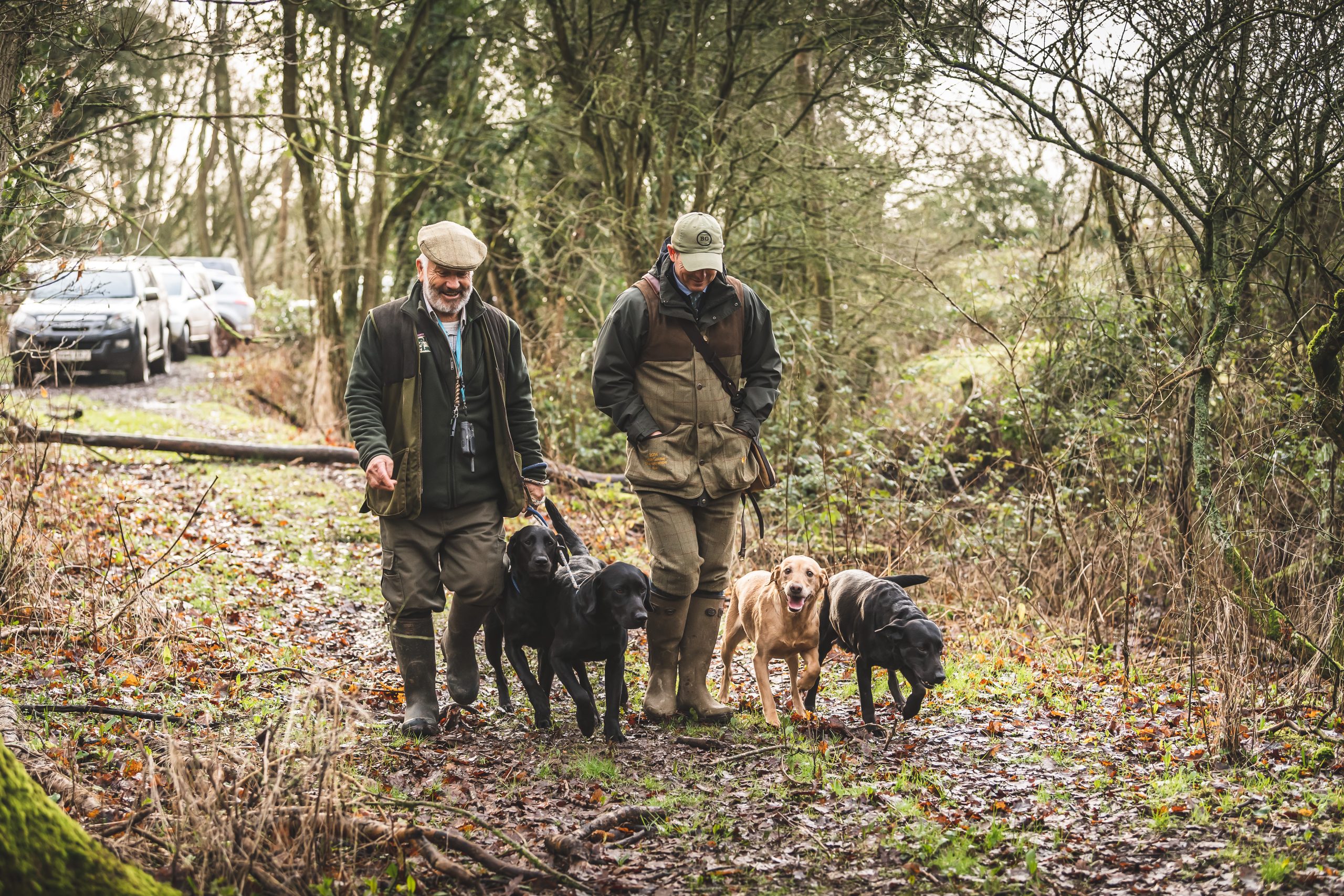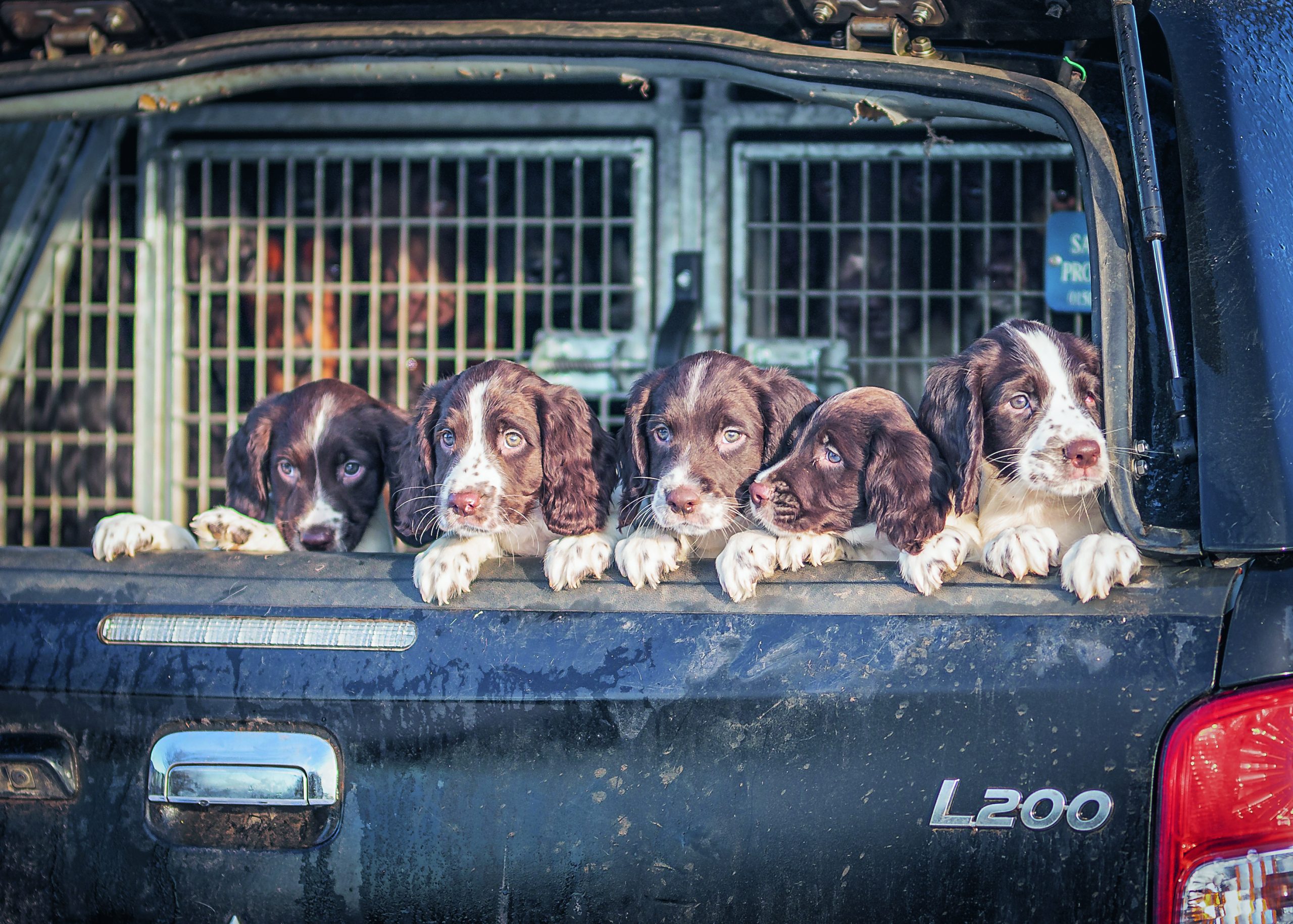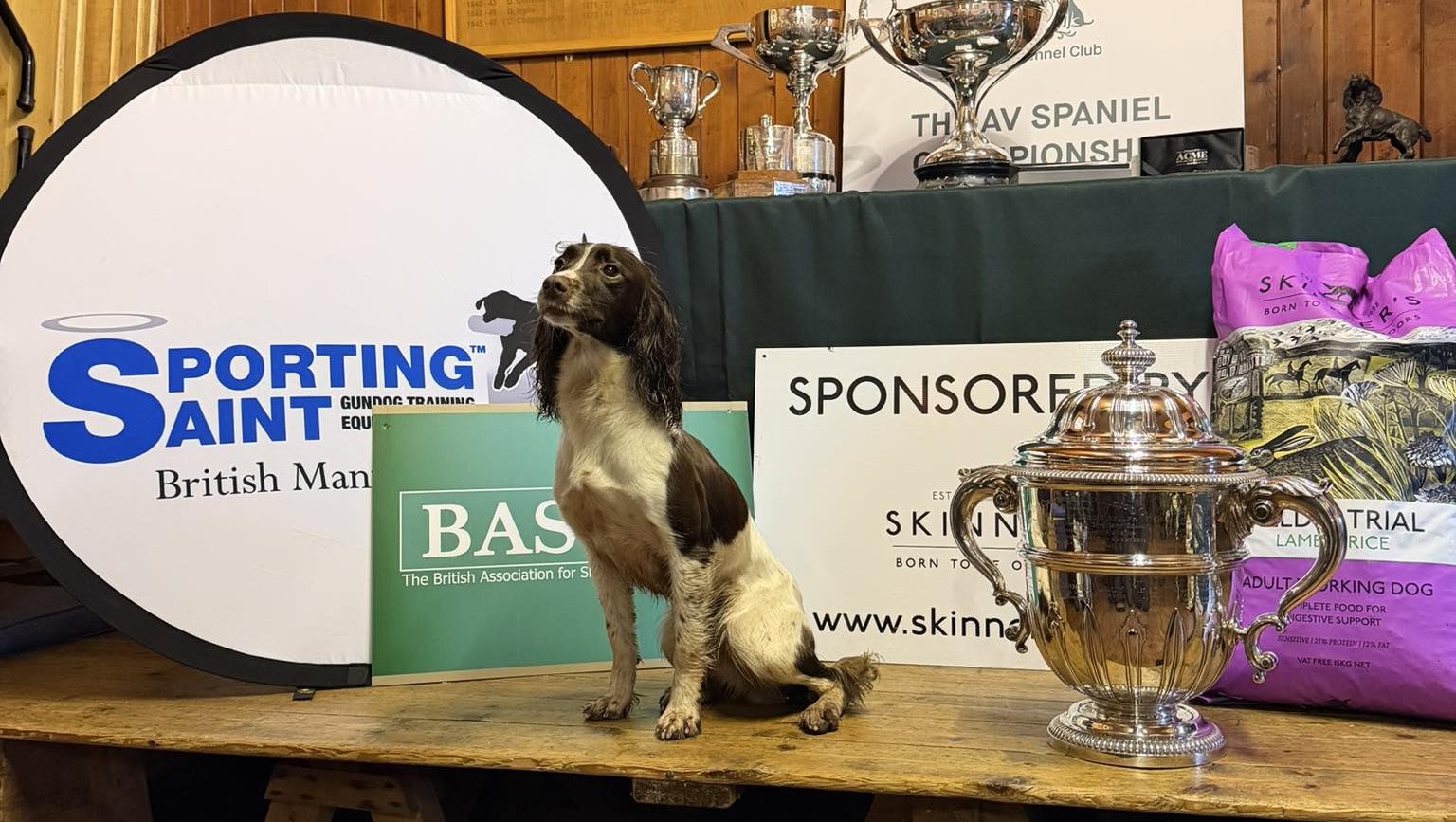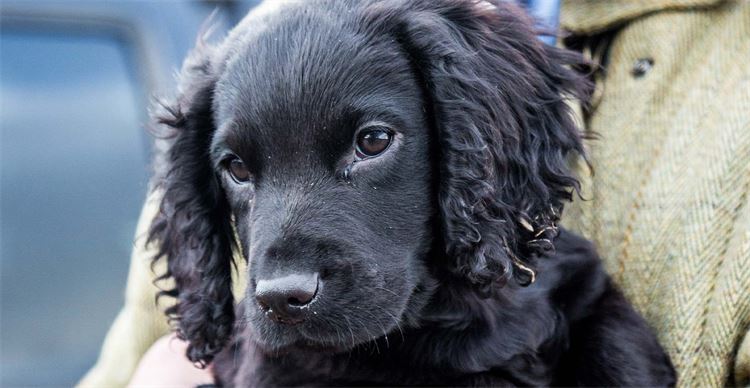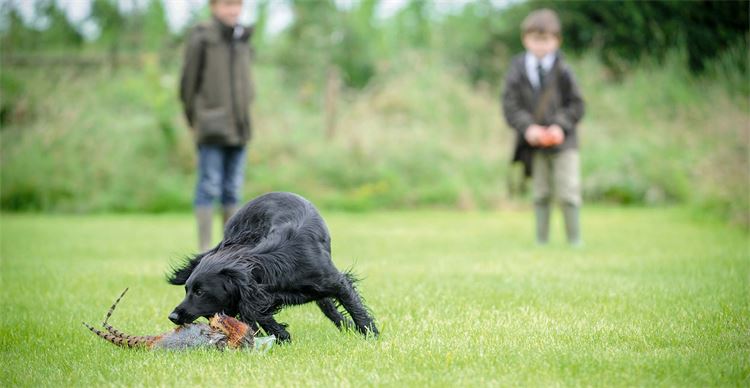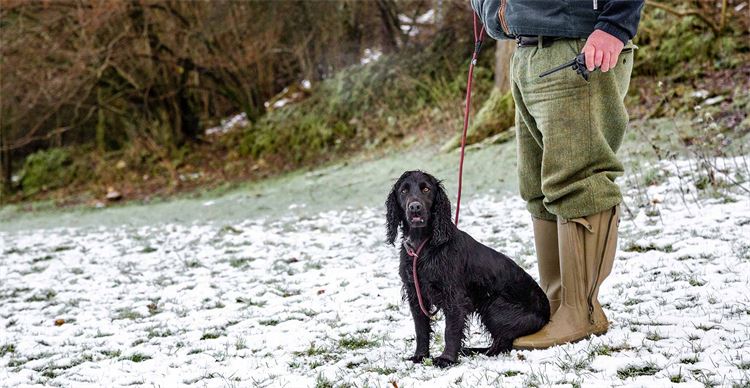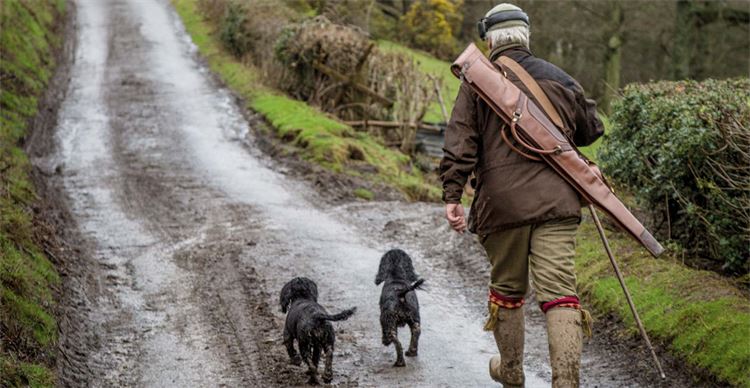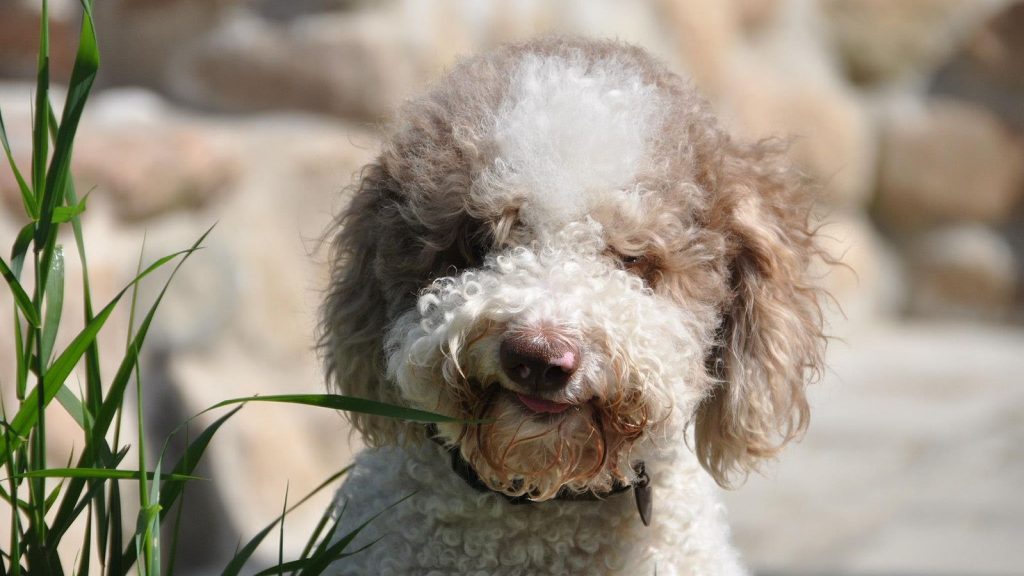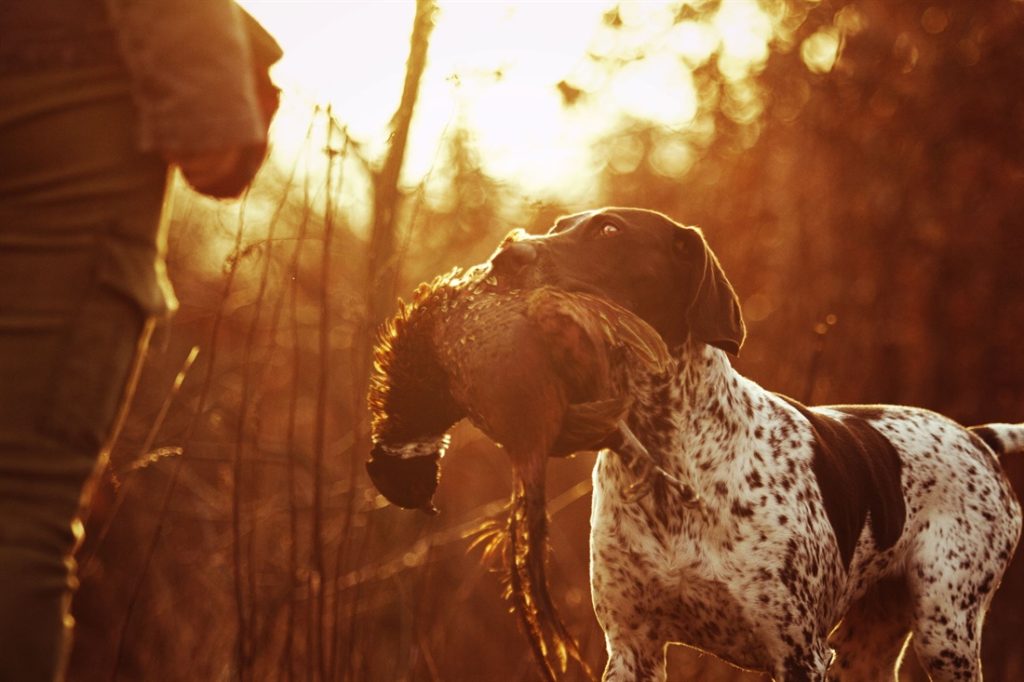Cocker spaniel
We take a close look at the cocker spaniel, the UK’s second most popular gundog breed.
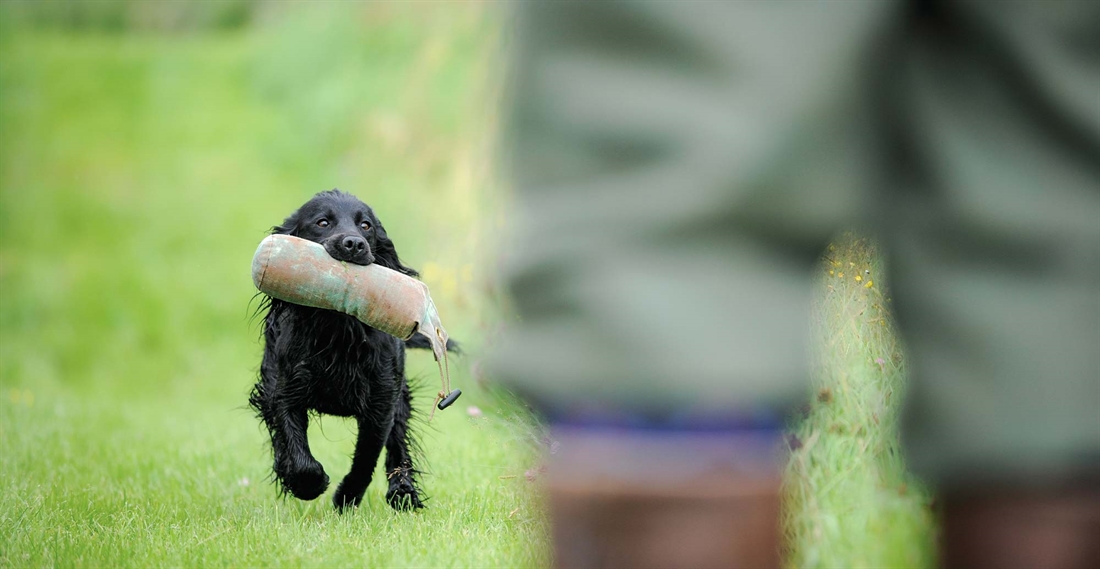
History:
Spaniels are one of the oldest breeds of dog, said to have been noted in history prior to the birth of Jesus Christ. Though their origin is not accurately documented, many believe that spaniels originated in Spain – linked to the French phase ‘Chiens de l’ Espagnol’, which translates to ‘dog of Spain’.
A well documented fact, however, is that spaniels have been used as canine companions to effectively hunt game for centuries – long before the advent of sporting firearms as we know them today. By the 1600s, the breed had been separated into two types – land spaniels and water spaniels – depending on their preferred hunting environment.
Later, land spaniels were further divided into sub breeds, ‘setting’ spaniels and ‘springing’ spaniels – the latter being used for flushing small game species like rabbits or gamebirds, initially to provide sport for falconers or greyhound handlers.
Around the mid to late 1800s, this springing spaniel sub breed was divided once again, this time into springer, Sussex and cocker spaniels – the classification determined by the size of the pups from the litter; springers being the largest, and cockers the smallest. Being of a slighter build, the cocker spaniel majored in hunting small gamebird species like woodcock, hence the breed’s name.
And so, breeding from dogs of a smaller build over decades resulted in the cocker spaniel having an identity of its own – a small, energetic and highly biddable gundog that is excellent at both flushing and retrieving game.
How many cocker spaniels are registered in the UK?
(Photo credit: Bob Atkins)
Kennel Club records show that in 2018, of the 91,194 gundog puppies registered to the organisation in the year, 23,927 were cocker spaniels, making it the second most popular gundog breed in the UK.
Traits and characteristics:
Working cocker spaniels are a breed renowned for being characterful, highly energetic with a surprising amount of stamina, and of a very friendly nature with an impressive will to please. Not only are they great gundogs, but they happily double as family companions provided they are given enough exercise on a daily basis to keep their mind occupied. With the right methods and patience, they are also very trainable.
Conformation of cocker spaniels:
Cocker spaniels are one of the smallest gundog breeds – weighing in the region of 14kg – with a slender and athletic build. They are renowned for their good looks and slightly feathered, silky coats that range in colour from black to lemon and liver to orange – often with several colours together.
Cocker spaniels bred for working usually have their tails docked when young to prevent painful injuries when working in thick cover.
Average life expectancy:
In excess of 10 years.
Health issues:
Cocker spaniels can be susceptible to minor health problems such as hypothyroidism, kidney disease, cataracts, hip dysplasia and deafness. There are some health problems that are more serious, including progressive retinal atrophy and patellar luxation, which can be prevented with the right care and attention to health testing results when picking a puppy.
Feeding and nutrition – from the Chudleys’ nutritionist:
“As a nutritionist, one designs a diet first and foremost to meet all the nutrient requirements to support a long, active and healthy life.
“For working breeds, fundamental nutrient requirements vary very little, if at all. There may be subtle trend differences between the breeds in terms of certain conditions that are more prevalent in one particular breed over another that may be helped by using appropriate functional nutrition.
“The key differences in nutrient requirements for working dogs stem from the duration and intensity of the work undertaken. The higher the workload, the more energy your dog will require. A very active dog will therefore need to eat more food, and as a result will get more of all the other nutrients it requires, such as protein and vitamins.
“It is important to know where that energy needs to come from. Sprint work requires a diet consisting of more carbohydrate and some fat – a diet of around 22–25% protein and up to 14% fat is preferred – whereas a dog working long days on a moor will rely more on fat and fat reserves – a diet with 24%+ protein and 14%+ fat works best.
“Finally, when it comes to choosing the size of the piece of food, studies have proven that all breeds prefer a kibble of around 14–16mm in diameter.
“So, choose a diet to suit your dog’s workload and type, and one that provides those functional nutritional aspects as well.”
Why do cocker spaniels make good gundogs?
Over recent decades, the cocker spaniel has forged a reputation as being an excellent all-round gundog, with many reputable handlers having introduced them to their previously ‘labrador-only’ kennels.
Their small size means they are an agile breed capable of working thick cover in a thorough fashion – and they will take up very little room in the car or gunbus! Their stamina is surprising for their size, but they tend not to have the engine of a springer spaniel. They are good retrievers and surprise many with their ability to retrieve even large gamebirds like cock pheasants.
Cockers are renowned for their quirky nature. Their energetic, excitable and intelligent nature can make training a difficult task for the novice handler, as they have been known to be a little more selfish, mischievous and inclined to think about themselves. Cockers are more likely to ‘ask questions’ of their owners – they might, for example, feel less inclined to enter thick cover if they cannot see (or smell) good reason to do so.
It is also worth noting that cocker spaniels are a sensitive breed and are quick to learn when their owner is frustrated, and as a result they often lose interest if training sessions are not kept interesting. It therefore pays to ensure that training sessions are short, fun and end on a positive note.
So whether your days in the field are spent in the beating line, picking-up team or with a gun in hand, a cocker spaniel is very capable of fulfilling each role.
Related Articles
Get the latest news delivered direct to your door
Subscribe to Gundog Journal
Unlock the full potential of your working dog with a subscription to Gundog Journal, the UK’s only dedicated magazine for gundog enthusiasts. Published bi-monthly, this authoritative resource delivers expert training advice, in-depth interviews with top trainers and veterinary guidance to help you nurture a stronger bond with your dog.
With stunning photography and thought-provoking content, Gundog Journal is your essential guide to understanding, training and celebrating your working dog.
Save 10% on shop price when you subscribe, with a choice of packages that work for you. Choose from Print & Digital or Digital only with each journal delivered directly to your door or via the app every other month, plus access to past issues with the digital back issue library.
